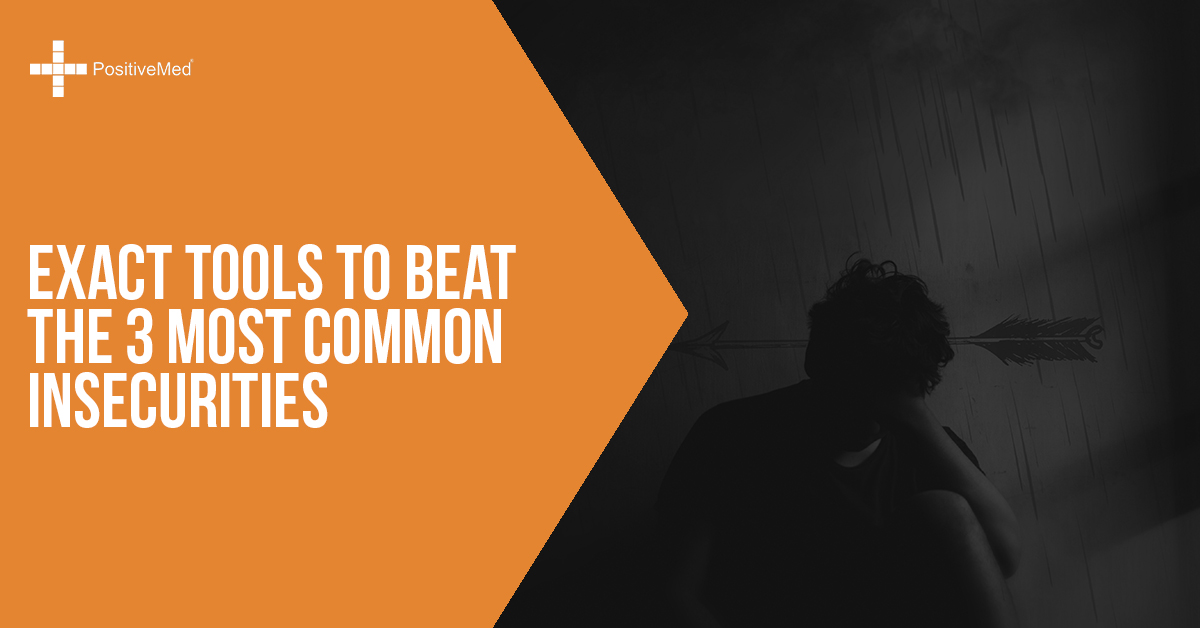Despite your accomplishments, you may often find yourself lacking self-confidence and filled with self-doubt. You may feel that your partner will inevitably leave you because you do not deserve to be loved. You may even stay home instead of venturing out due to the fear that you have nothing or very little to offer. Although many factors cause insecurities, some are more common. Below are three of the most common insecurities and how to cope with them.

1. Insecurity due to recent failure or rejection
Recent events in your life can affect your mood and how you feel about yourself. Research suggests that termination of relationships is the biggest cause of unhappiness, followed by spousal death, loss of jobs, and negative health events. About 40% of your “happiness quotient” is a direct result of recent life events.
Rejection usually causes you to view both yourself and others in a more negative manner, at least for a while. Experiences such as the loss of your job activate old, negative beliefs and feelings about your worth. Although people with existing low self-esteem are more reactive to failure, understanding that it is a nearly ubiquitous experience might help. Despite setbacks, perseverance often leads to eventual successes, which inevitably raises self-esteem.
RELATED ARTICLE: Anxiety Disorder: Who Is Affected Most
Below are some tools you can use to overcome insecurities caused by failure or rejection.
• Allow yourself some healing time while adapting to the new normal.
• Venture out and engage with life by following your interests.
• For some comfort and distraction, reach out to family and friends.
• Obtain feedback only from the most trustworthy people.
• Practice perseverance and keep trying for your goals.
• Be open to different strategies if necessary.
2. Lack of confidence due to social anxiety
RELATED ARTICLE: Here’s What You Need to Boost Self-Love
You may often lose confidence in social situations such as family gatherings, dates, parties, and interviews. Fear of being evaluated and judged as lacking often leads to anxiety and self-consciousness. You might consequently avoid social situations, feel anxious in anticipation of social events, or uncomfortable and self-conscious during such functions. Past experiences often feed negative senses like not belonging, unimportance, as well as not being good enough or interesting. Critical parenting or exclusions during childhood could affect your confidence in a negative manner even as an adult.
This type of common insecurities is based mainly on distorted self-worth beliefs and the extent to which others judge you. As opposed to judging others, most people are primarily focused on how they come across. The judgmental ones are often covering up their insecurities, meaning their opinions could be less than accurate. Such individuals value superficial attributes in place of character and integrity.
Below are a few tools to help you overcome insecurity in social situations:
• Despite personal criticism, remind yourself why you would make an excellent partner or friend and how exciting you are.
• Prepare beforehand by considering a few conversational topics such as current events, movies, hobbies, or family.
• Attend parties or go on a date even though you feel nervous since avoiding social situations only makes matters worse. Engaging with others will reduce your anxiety, even though it might take getting accustomed.
• Set a limited, realistic goal for yourself such as getting to know two new people.
• Focus on others to avoid intense self-focus. Observe and note other people’s feelings and actions because you might learn from some of their skills or notice similarities.
3. Common Insecurities due to perfectionism
You may have set very high standards for whatever you do, which includes the desire to attain the best job, highest grades, or a perfect figure. Unfortunately, life rarely turns out as planned or desired regardless of extra effort. Something almost always remains out of your control, be it another person or genetics. You might feel insecure and unworthy as a result of constant disappointments and self-blame for being less than perfect.
Although working hard and trying your best is beneficial, some aspects of perfectionism are unhealthy. Worrying that you are not good enough often leads to depression, anxiety, eating disorders, or chronic fatigue.
Below are a few ways to overcome perfectionism.
• Evaluate yourself based on your effort and not the outcome since results usually, depend on external factors.
• Consider the potential difference if you were 10% more effective and whether the time and energy invested then would prove worthwhile.
• Look for more compassionate or understanding ways of viewing situations and consider your circumstances when evaluating yourself. Find out what you may have achieved or learned despite the imperfect outcomes.
• A perfectionist often has conditional self-esteem, meaning self-appreciation comes only when things work out. Learn how to appreciate yourself even when you aren’t performing well by focusing on your inner qualities such as character.
Conclusion
Although many factors contribute to insecurity, overcoming such feelings necessitates individual effort and input. Regardless of advice and assistance, it inevitably comes down to you and whether or not you are willing to try.






